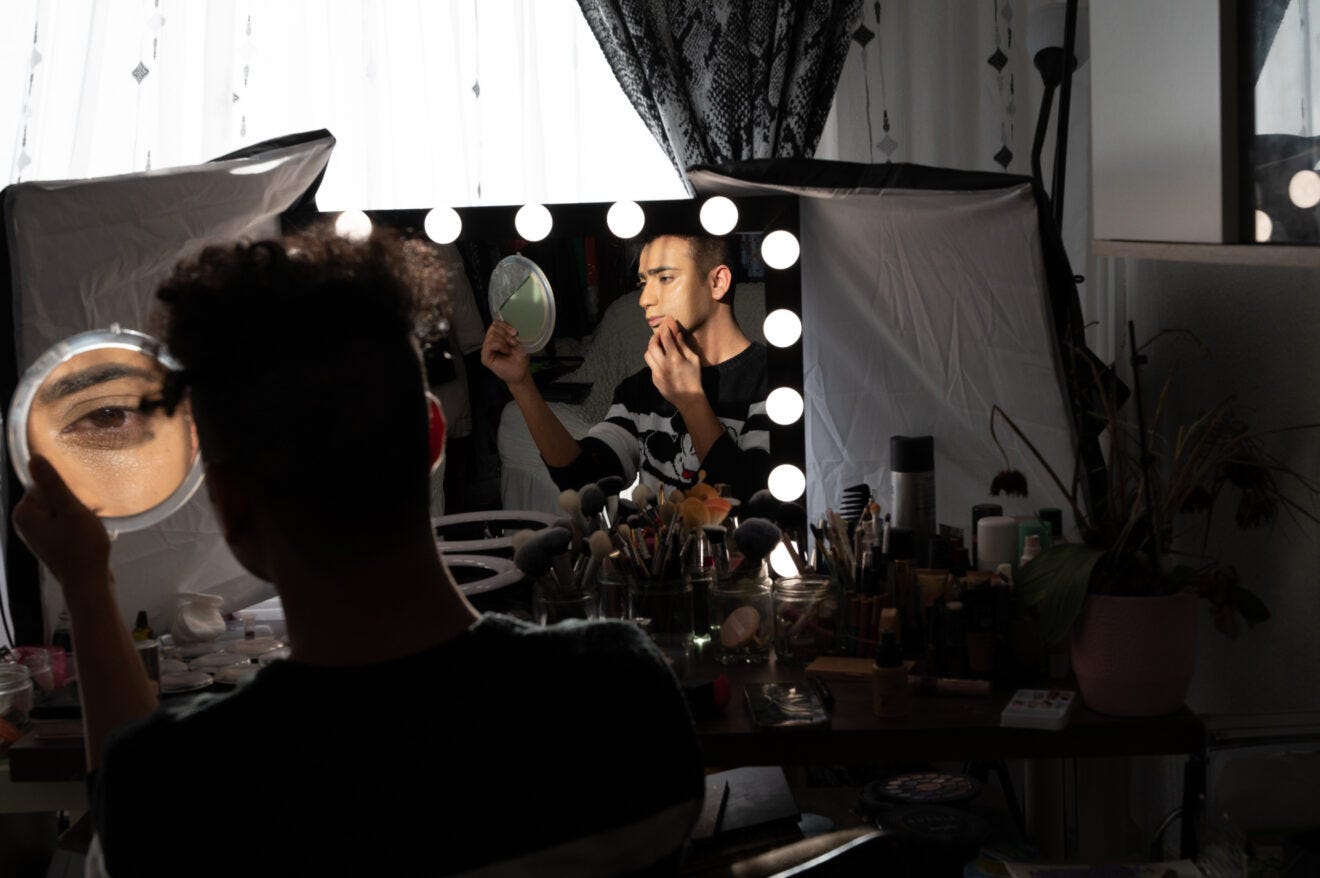The Daring Dreams of the First Afghan Drag Queen
Najib Faizi has survived death threats, beatings, kidnapping and more, becoming a fearless role model for LGBTQ refugees everywhere.
Wearing 5-inch stilettos and proudly clutching the red, green and black flag of her country, Afghanistan’s first drag queen struts toward the stage. Her cheekbones are glowing, not just because of her sparkly highlighter makeup but also thanks to her pre-performance ritual: smearing a thick white layer of Greek yogurt on her skin. In a colorful, skin-tight minidress and bold makeup, Najiba looks ultrafeminine and striking. Beneath her makeup though, her expression is not girlish or coy but bitterly determined. She is here to protest.
Thanks to her stilettos, Najiba towers over the crowd, even before she takes her place on the stage and begins to speak in accented German: “Because of my clothes and makeup, many Afghans and Iranians attack and discriminate against me on the street.” She points to the flag waving above her curly, black hair. She declares that this national symbol is “also my flag. I’m allowed to have that flag. It doesn’t matter how I look or what I wear, how I put on makeup.”
Najiba’s message to the crowd is loud and clear: She will wear what she wants and continue to protest for the rights of the queer Afghan community. But she’s not all business either. At the end of her speech, she adds, slyly, “We prepared a dance for you, because we don’t want our demonstration to be boring.”
On cue, the music starts to play. It’s not the kind of music normally heard at Hamburg’s drag shows though. No pop songs or thumping techno beats today. Instead, traditional Afghan music plays through the speakers. Najiba steps off the stage and breaks into a dance, an artful blend of Afghan, Iranian, and Pashtun styles. She is light on her feet, smiling wide as she twirls and rolls her body expertly, midriff exposed.
The camera swivels around her, and another dancer joins, swirling her pink skirt. The crowd looks on, holding their phones up to film, entranced by the performance. Some spectators clap or join in, drenched in Najiba’s aura, offering solidarity by gyrating along with her. Others look angry or uncomfortable, standing with arms crossed. One passerby spits at the camera in disgust, but Najiba continues, unbothered.
The video of Najiba’s drag performance went viral on YouTube, racking up more than 300,000 views and a flood of comments from well-wishers — as well as from haters who were praying for her soul (or worse).
Najib Faizi has amassed an enormous online following — from Afghans to Germans and beyond — as Najiba, the “first drag queen” from Afghanistan, a likely claim that no one has disputed. The title is an honor, but it also puts a target on his back. While Najib has received overwhelming praise and recognition, he’s also gotten death threats and endured familial abuse because of his self-expression.
Despite being an online activist and influencer, Afghanistan’s first drag queen feels most alive not when he’s in front of the camera, recording playful makeup videos or chatting with talk show hosts, but rather when he’s in the streets, performing drag as an act of protest and empowerment. Najib is a natural performer who has always been fiercely committed to expressing himself. But his determination to be his true self — from pushing against Afghanistan’s rigid gender norms to fleeing his country as a child and undertaking a grueling cross-continental journey to Germany — is a mission that’s come with great costs.



